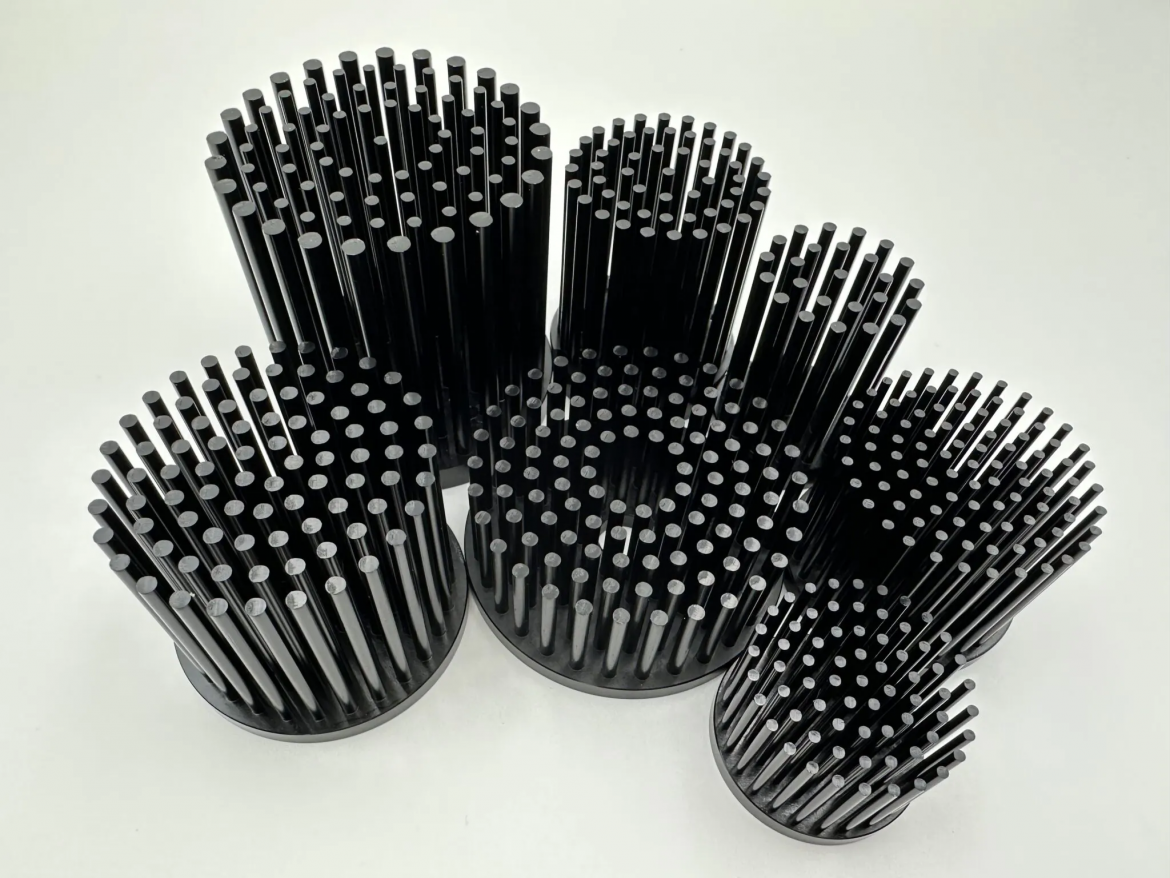In high-power electronics such as 5G base stations, electric vehicle inverters, and industrial laser systems, cold forged heat sinks offer a superior alternative to extruded or die-cast solutions by combining higher thermal conductivity with intricate fin geometries. Dingmetal specializes in manufacturing forged heat sink assemblies that leverage controlled deformation processes to enhance material density and surface finish, ensuring optimal heat dissipation in compact spaces. From copper alloys for ultra-low thermal resistance to aluminum-silicon carbide composites for lightweight durability, the company’s designs meet stringent requirements for applications where every degree of cooling efficiency matters.
Material Density Optimization Through Controlled Forging
Dingmetal’s cold forging process involves applying pressure at room temperature, effectively eliminating porosity and refining the grain structure of the material. This enhancement results in significantly improved thermal conductivity compared to cast alternatives. For a telecom infrastructure client, the company produced a copper-molybdenum heat sink with exceptional density, which substantially reduced thermal resistance between the junction and the ambient environment in high-power RF amplifiers. The use of automated forging presses ensures consistent deformation rates, guaranteeing uniform fin thickness across intricate profiles such as pin-fin arrays.
Micro-Channel Integration for Enhanced Surface Area
The company’s engineers employ precision tooling to integrate micro-scale channels and turbulators into forged heat sinks, enhancing their cooling efficiency. In a recent project for a medical imaging MRI gradient coil, they incorporated finely etched channels into an aluminum heat sink, significantly increasing the surface area without enlarging the overall dimensions. After forging, CNC machining is utilized to achieve precise fin spacing tolerances, ensuring optimal airflow and preventing stagnation in forced-convection cooling systems.
Engineering Efficiency into Compact Thermal Solutions
By merging material science, micro-structure control, and protective coatings, Dingmetal’s cold forged heat sinks enable electronics manufacturers to achieve higher power densities without compromising reliability. Clients benefit from reduced cooling system complexity, lower fan noise, and the ability to integrate thermal management directly into chassis designs—key advantages in markets where space constraints and energy efficiency drive competitive differentiation.
